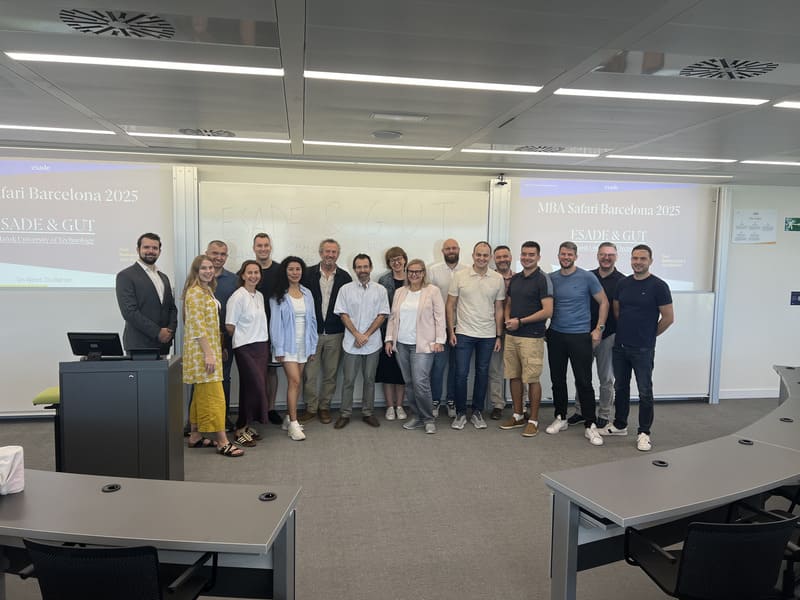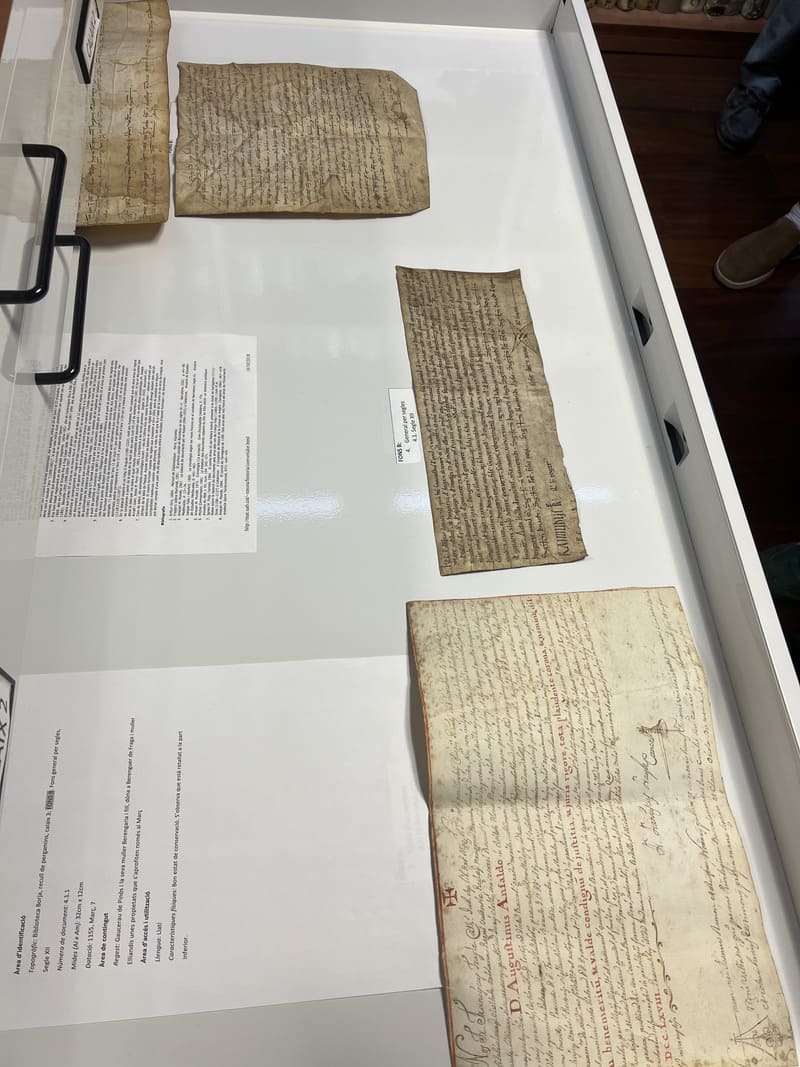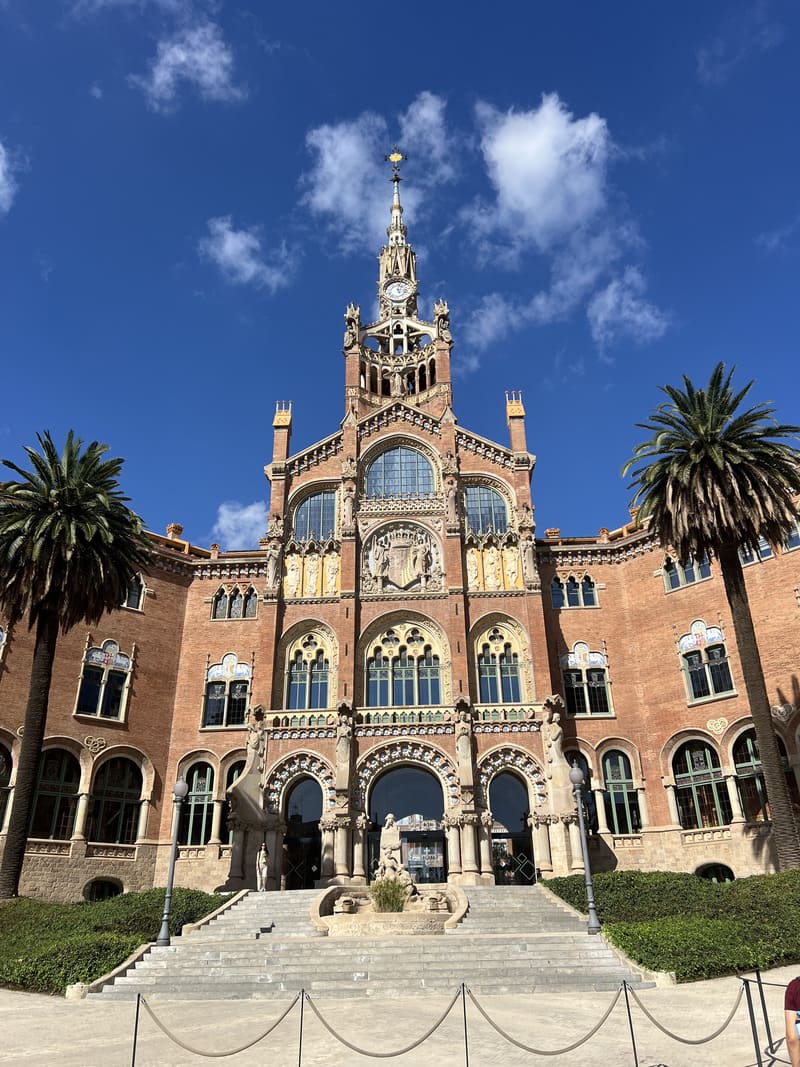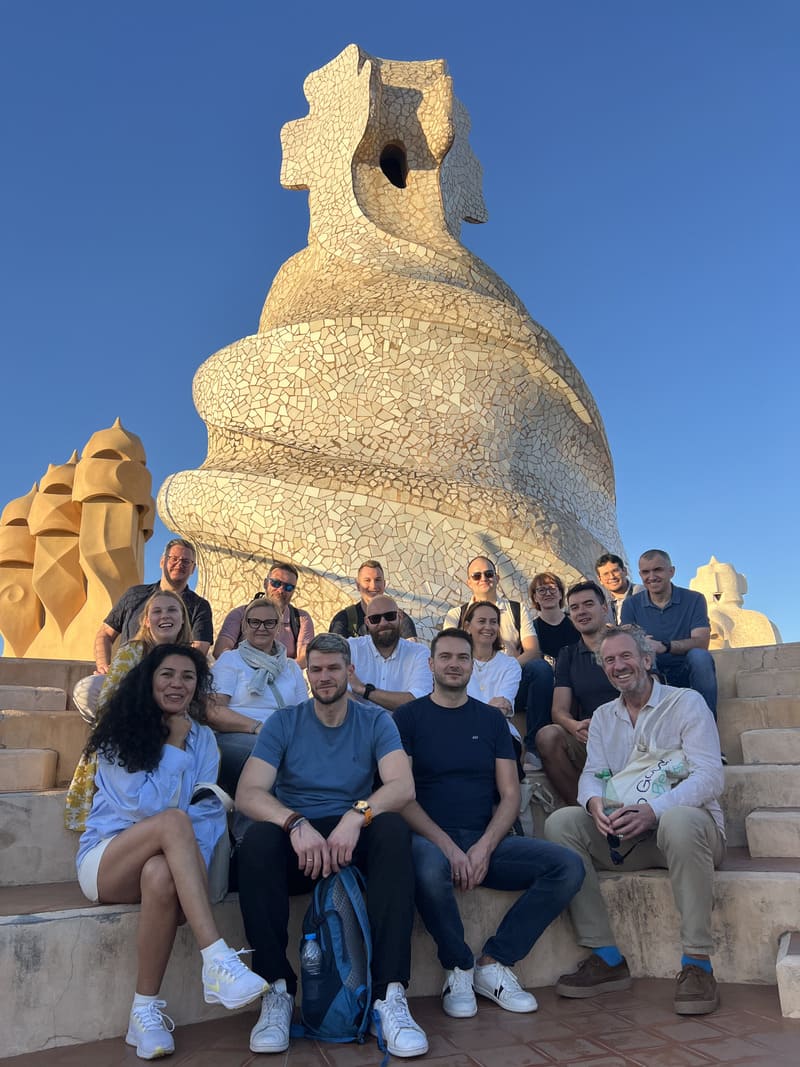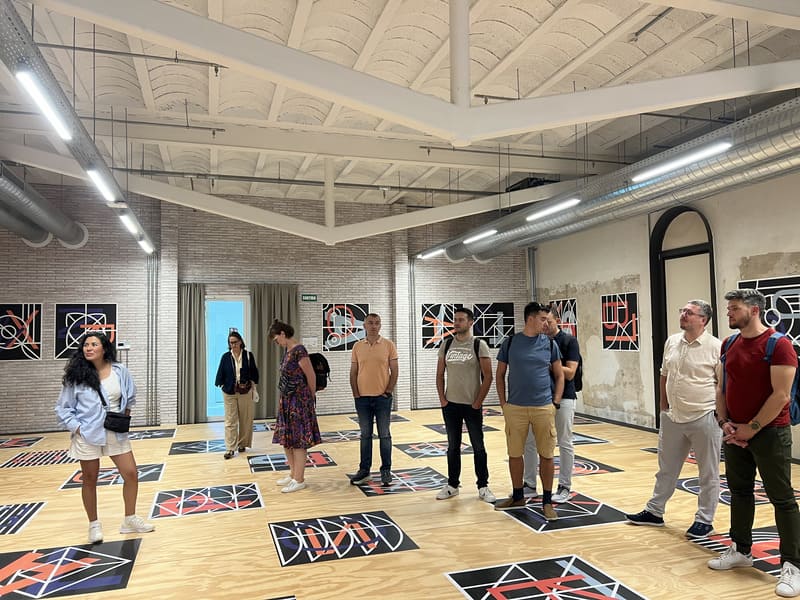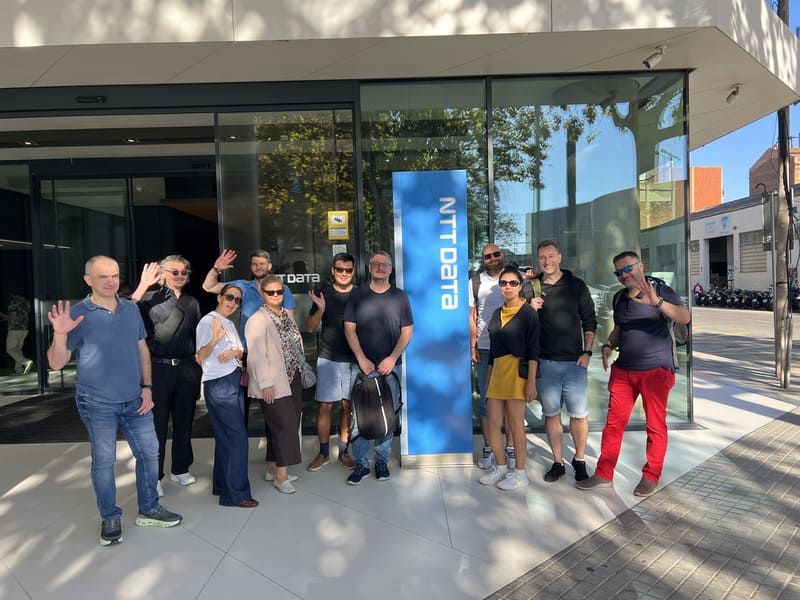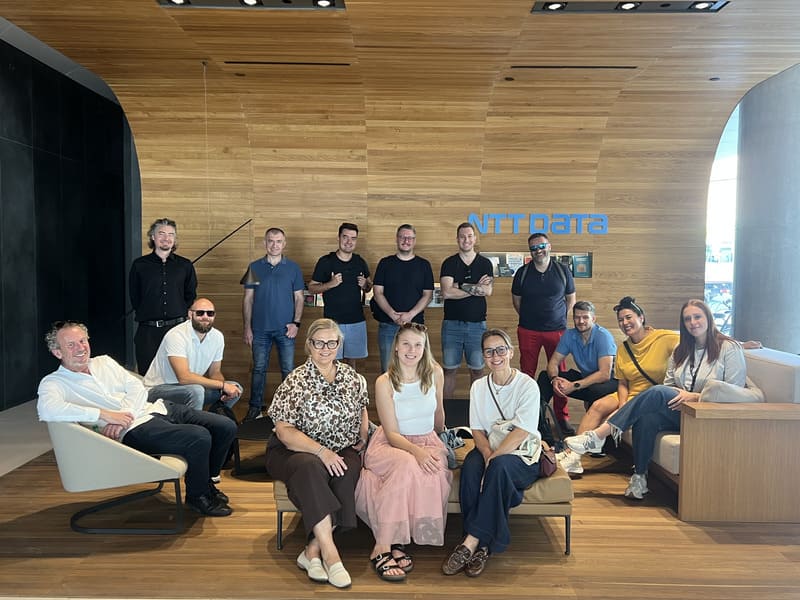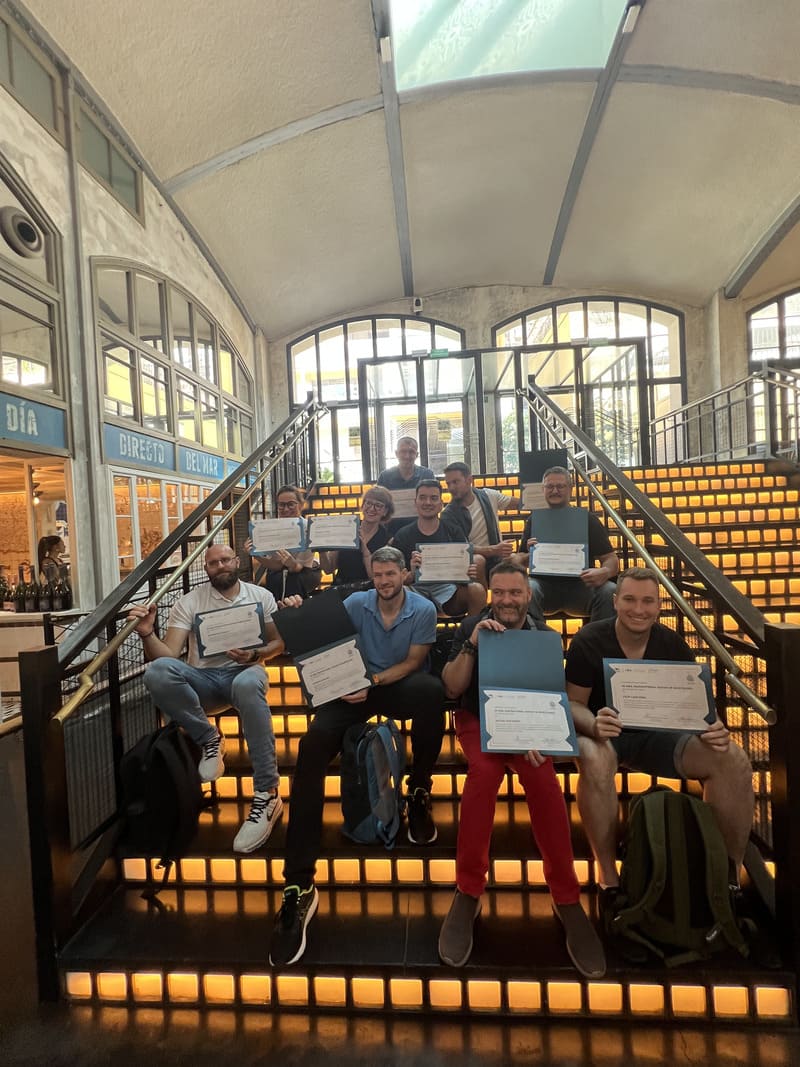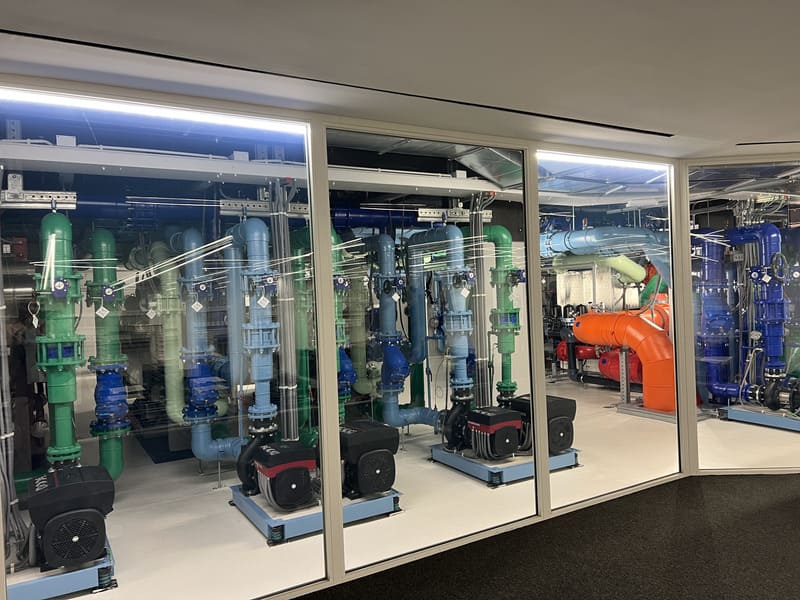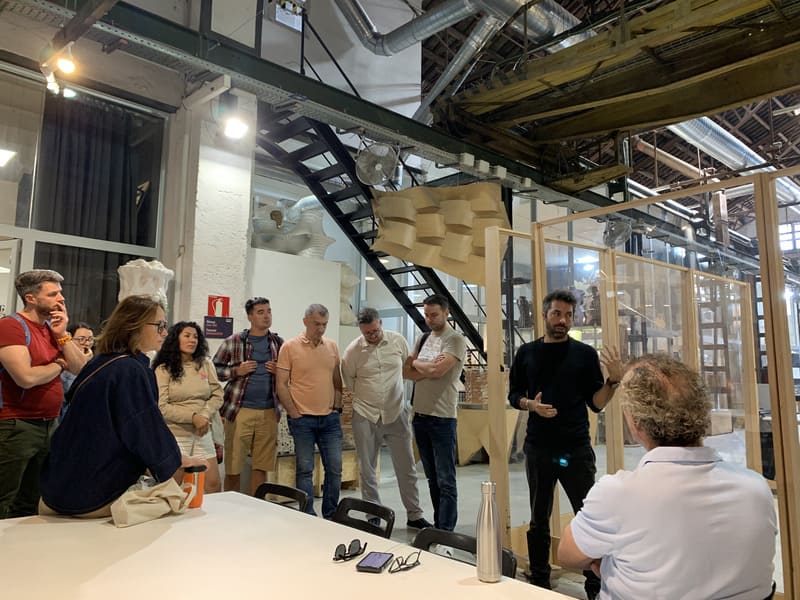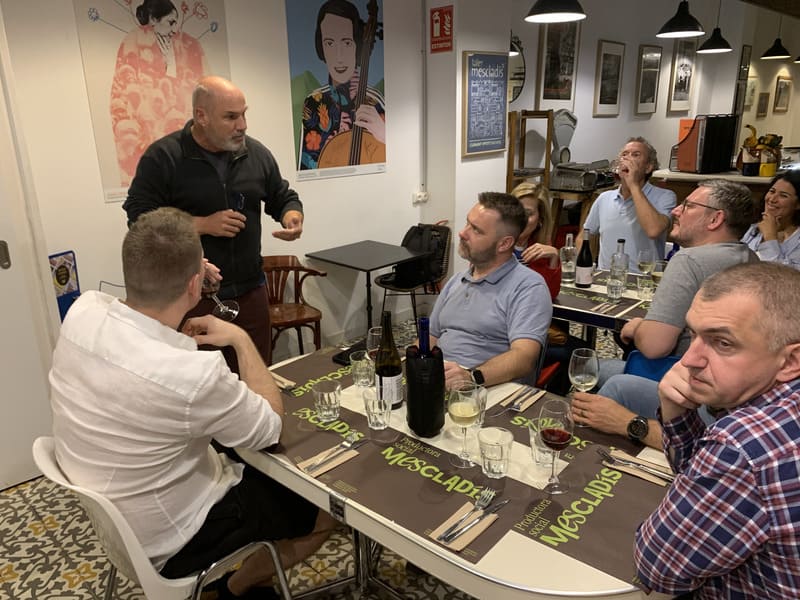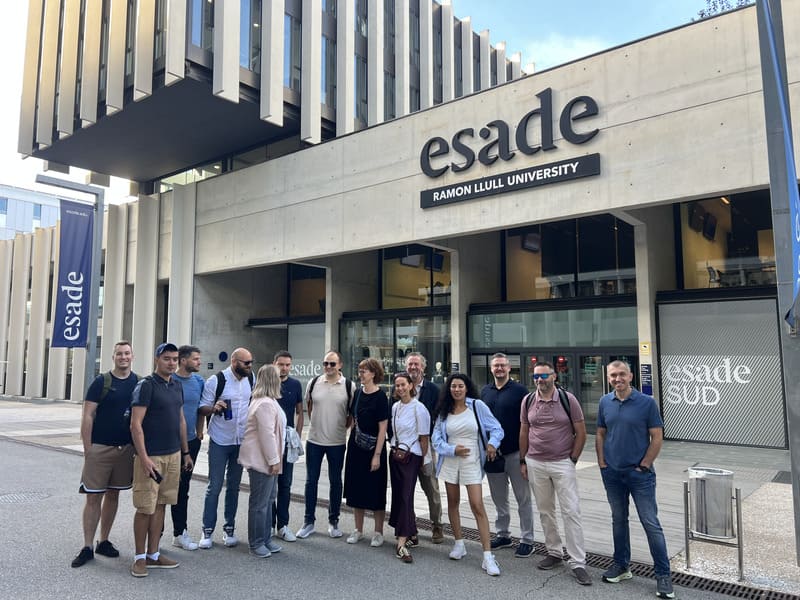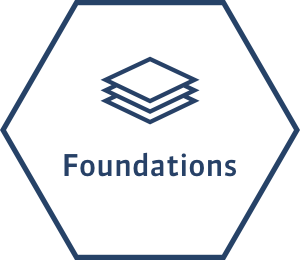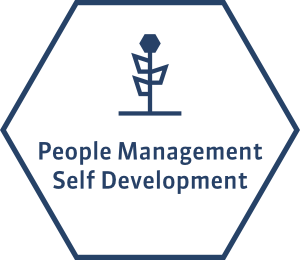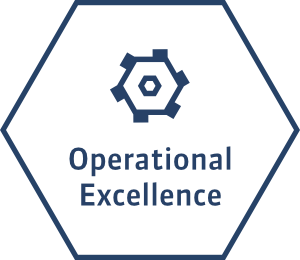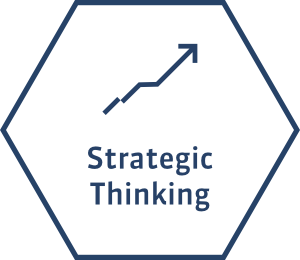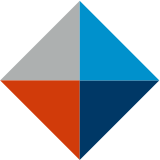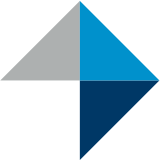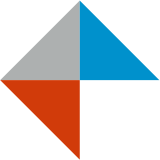MBA Inspirational Safari: Barcelona, 6–8 October 2025
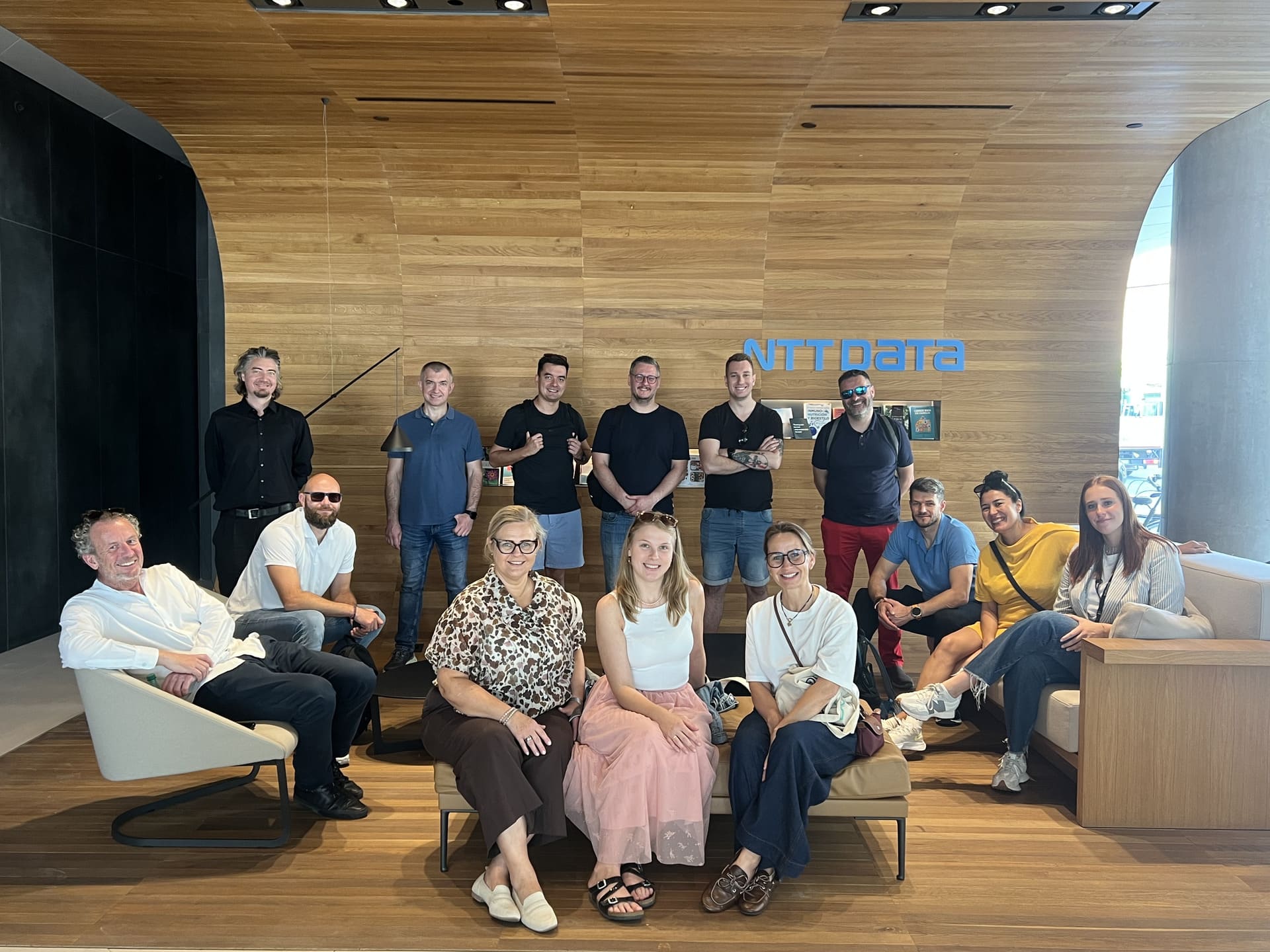
At the beginning of October, our MBA Students and Alumni from the Gdańsk University of Technology embarked on an inspiring three‑day Inspirational Safari in Barcelona — a city that seamlessly blends innovation, design heritage and sustainable development. Over 3 days, we visited a range of institutions and initiatives that reflect the future of business, society and technology in Europe.
Day 1: Monday, 6 October – A leading business school, health innovation and Gaudí’s vision
Our first stop was the distinguished ESADE Business School (https://www.esade.edu/en) — ranked among Europe’s top business schools and holder of the triple‑crown accreditation (EQUIS, AMBA, AACSB). At ESADE we witnessed how a top business school is actively evolving to respond to shifting student needs, be it at the full‑time higher‑education level or in executive programmes.
During a succinct lecture we explored how artificial intelligence is transforming strategic management — not only accelerating analytics but also enhancing creativity. We practised advanced prompt‑engineering techniques: how to improve output quality and avoid risks of misinformation. On campus we toured the library, where original manuscripts dating back to the 12th century sit alongside cutting‑edge immersive‑learning labs. We experienced VR and immersive‑visualisation tools firsthand — observing how they facilitate student creativity, engagement and well‑being.
After lunch at the iconic food market La Boqueria, we visited the Barcelona Health Hub (https://barcelonahealthhub.com/en/) — housed in a former 20th‑century hospital that operated for over a century. The Hub is dedicated to supporting digital‑health startups: offering space and services to teams developing pro‑health, pharma and hospital‑oriented solutions based on technology. The visit underlined how health‑tech innovation is becoming deeply linked to the sustainable wellbeing agenda.
Our day concluded with a cultural perspective at Casa Milà, one of Antoni Gaudí’s last residential masterpieces. Built at a time when a garage in the basement was almost unheard‑of, it stood for technological and practical innovation of its era. We ended the day with dinner at Flax & Kale — a family‑run gastronomy business focused not only on taste but on nutritious, healthy food. We learned how a small‑scale restaurant dream can evolve into a diversified, high‑quality brand rooted in sustainability and wellbeing.
Day 2: Tuesday, 7 October – Innovation ecosystems & immersive technologies
We started at the Barcelona Activa (https://www.barcelonactiva.cat/en/) business hub — an organisation fostering entrepreneurship and employment, including support for immigrants and women in the labour market, especially in high‑tech, digital and sustainable sectors. Roughly 60 % of its efforts are directed at employment support, emphasising inclusive growth. Barcelona Activa exemplifies how targeted actions on inclusivity and sustainability drive a city’s long‑term vitality.
Our next stop was FabLab Barcelona (https://fablabbcn.org/), part of the Institute for Advanced Architecture of Catalonia (IAAC). FabLab merges technology, social design and innovation to create more sustainable, resilient urban systems. From makerspaces to digital‑fabrication training and circular‑economy initiatives, we saw how local production, reuse and citizen participation are transforming cities. The prototyping lab brought theory into practice.
After lunch we visited XRLab Barcelona (https://barcelonaxrlab.com/en/)— a tech‑creative hub in a repurposed 19th‑century textile factory. With 2,000 m² of immersive labs, photogrammetry studios, metaverse spaces, coworking and event auditoria, it creates a collaborative ecosystem for XR, VR and immersive‑wellness. We experienced immersive‑brain‑activity tools designed to enhance mental health and wellbeing — a striking reminder of how innovation reaches beyond hardware into human‑centred design.
Day 3: Wednesday, 8 October – Global tech players, supercomputing and digital society
Our final day featured a visit to NTT DATA — a global leader in digital‑tech consulting, with 5,000 employees in Barcelona alone. We toured their sustainable‑certified offices, each floor thematically dedicated to a different aspect of Barcelona’s heritage. In the NTT Innovation Centre we observed how interactive technologies (AI agents, data‑analytics tools, robotics) are deployed in collaboration with clients. The “Alchemy of Innovation” motto captured how trust, curiosity, collaboration and passion drive change.
After lunch we visited the Barcelona Supercomputing Centre (https://www.bsc.es/ – BSC) and its iconic supercomputer “MareNostrum”, housed inside a former chapel whose design aids natural cooling. With 260+46.4 Pflops of computing power it stands among the world’s leading supercomputers. The centre supports research across climate change, medicine, social sciences and engineering; it also contributes to the EuroCC Project, connecting with our own university’s infrastructure. We learned how this computational power enables research that would otherwise be impossible, enabling sustainable‑development modelling and advanced AI in national languages.
We rounded off at the i2CAT Foundation(https://i2cat.net/) , Barcelona’s digital‑innovation hub focusing on 5G/6G, IoT, immersive technologies, cybersecurity and digital society. We discovered how the centre promotes “mission‑driven knowledge” through research, technology transfer and citizen empowerment. Its collaborative model, bringing together companies, public administration, academia and users, illustrates how innovation can be inclusive, socially‑relevant and sustainable.
We would like to thank all partner organisations and everyone who made the Safari possible. Our cohort returned to Gdańsk with fresh perspectives, new networks, and a renewed sense of purpose for innovation, sustainability and business leadership.
We look forward to sharing more about how these insights will shape our MBA programme and student projects. Stay tuned for detailed reflections and next‑steps.
